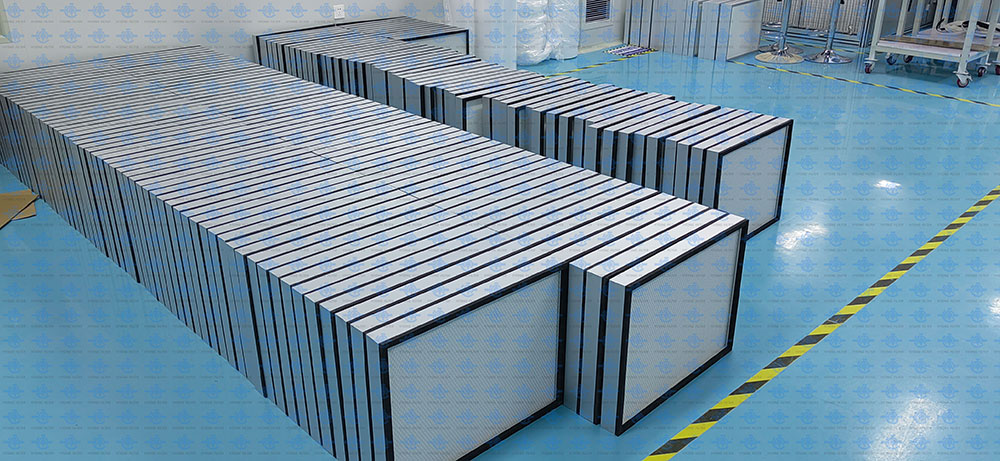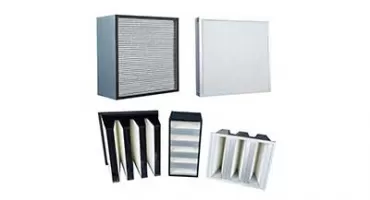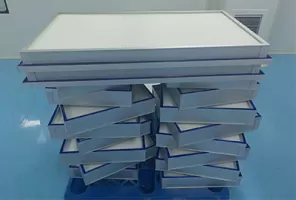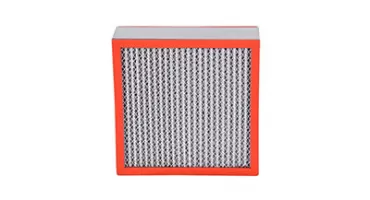 April 29, 2024
April 29, 2024
HEPA filters are crucial devices used extensively in air purification systems and cleanrooms, among other environments. Their primary function is to remove particulates, harmful gases, and bacteria from the air, thereby purifying it. When choosing a HEPA filter, it is important to consider the following aspects:

1. Determine Filtration Efficiency
The efficiency of an air filter is a key indicator of its performance, generally measured using dust particle counters. When selecting a HEPA filter, you should choose one based on the type, concentration, and size of pollutants to be filtered. For instance, more demanding cleanrooms may require filters with higher efficiencies, such as H13 or H14.
2. Choose the Right Filter Material
HEPA filters are usually made from ultrafine glass fibers, PP fibers, or other materials. The choice of material should depend on the specific environmental conditions and requirements. For example, filters used in high temperature and high humidity environments should be made from materials that are resistant to heat and corrosion.
3. Consider the Filter Area
The filter area significantly affects a filter’s performance, typically gauged by the amount of air it can process over time. When selecting a filter, consider the volume and flow rate of air that needs to be treated, as well as the desired filtration efficiency. It's also important to consider the space available for installation and the layout of the filters.
4. Evaluate Noise and Pressure Drop
HEPA filters generate certain levels of noise and pressure drop during operation, which are inevitable. Make sure that the noise level and pressure drop are acceptable for your application’s standards. Places with stringent requirements might need filters that operate with low noise and minimal pressure drop.
5. Assess Lifespan and Replacement Costs
The lifespan and replacement costs of air filters are also important considerations. When selecting a filter, understand its expected lifespan and the costs associated with replacing it to plan your budget effectively. Additionally, consider the ease and safety of filter replacement.
In summary, selecting a HEPA filter involves considering multiple factors including filtration efficiency, filter material, filter area, noise, pressure drop, lifespan, and replacement costs. A thorough understanding of the usage environment and requirements is essential to choose the right filter that effectively purifies the air.
Shijiazhuang Yitong Filter Machinery Co., Ltd. is a manufacturer of ventilation filters with over 20 years of experience in the filtration industry. Our products are exported to Europe, America, Japan, Korea, Africa, Australia, and other countries. We offer a complete range of branded replacements and provide OEM/ODM services. Please contact us if you have any requirements.
 Dec. 07, 2023
The Functionality and Applications of HEPA Filters
Dec. 07, 2023
The Functionality and Applications of HEPA Filters
 May. 13, 2024
The Importance of HEPA Filters in Ventilation Systems
May. 13, 2024
The Importance of HEPA Filters in Ventilation Systems
 Jun. 28, 2023
Purpose and Characteristics of High-Temperature Air Filters
Jun. 28, 2023
Purpose and Characteristics of High-Temperature Air Filters